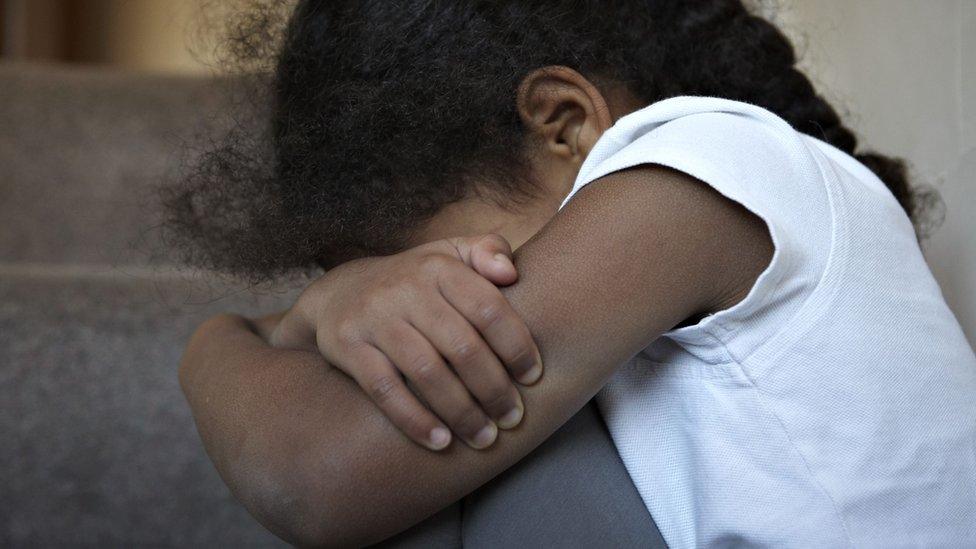Teachers 'need training to spot honour-based abuse'
- Published

Teachers need more training on how to spot honour and faith based abuse, says the ATL
A teachers' union has backed calls for more information and training for school staff on how to spot the signs of "honour-based abuse".
Some forms of abuse can go undetected because teachers are unaware that they exist, the Association of Teachers and Lecturers annual conference has heard.
Since 2015, teachers have been required to report cases of female genital mutilation in under-18s to the police.
But abuses like "breast ironing" often slip through the net, the union heard.
"Breast ironing or breast flattening, is the pummelling or pounding of a pubescent girl's breasts with hard or heated objects in an attempt to stop them developing," delegate Helen Porter, who proposed the motion, told the Liverpool conference.
"It often lasts for 20 minutes at a time and may be repeated daily for up to 10 months.
"To state the obvious it is extremely painful and can contribute to breast infections, cysts, cancer, depression and complications in breast feeding.
"Breast ironing has been carried out for many generations and is usually performed by mothers who wish to prevent their daughters from being sexually attractive to men in a bid to protect them from child marriage and pregnancy, sexual harassment, rape and the spread of HIV," said Ms Porter.
"It is practised in Cameroon, countries of western central Africa, Kenya and Zimbabwe. In the UK, girls in London, Leicester and Birmingham are most at risk."
Reporting concerns
A small survey, of 360 ATL members, published to coincide with the debate, found that many teachers are worried about reporting concerns about honour or faith-based abuse such as female genital mutilation, breast ironing or child marriage.
Often this is because they lack confidence in their own judgment, are concerned about being seen as prejudiced, or are worried it could damage their relationship with the child or their family, say the researchers.
Quoting the poll findings, Ms Porter, said that fewer than half of the respondents said they had been trained to recognise indicators of forced marriage - and only 13% had received training on how to recognise breast ironing.
Ms Porter said it was crucial for teachers to be well informed and to be able to intervene.
A teacher might be the only adult outside the family who knows the girl well, who can notice if she has become withdrawn, seems to be in pain, "avoids PE and will not change in front of other children", added Ms Porter.
She suggested that while the number or reported cases remain small - they could also be under-reported.
"We need to raise awareness of this type of abuse and produce guidance for members to prepare us to be vigilant and well-informed so that we can recognise the signs of such abuse," said Ms Porter.
ATL general secretary Mary Bousted said it was vital that staff were "given the information and training they need to feel confident about reporting their concerns.
An NSPCC spokesman said calls to the charity's helplines showed that hundreds of young people in the UK were affected by issues like faith-based abuse and FGM.
The spokesman said trained NSPCC counsellors were available to advise teachers on how best to protect children.
- Published6 February 2017
- Published13 December 2016